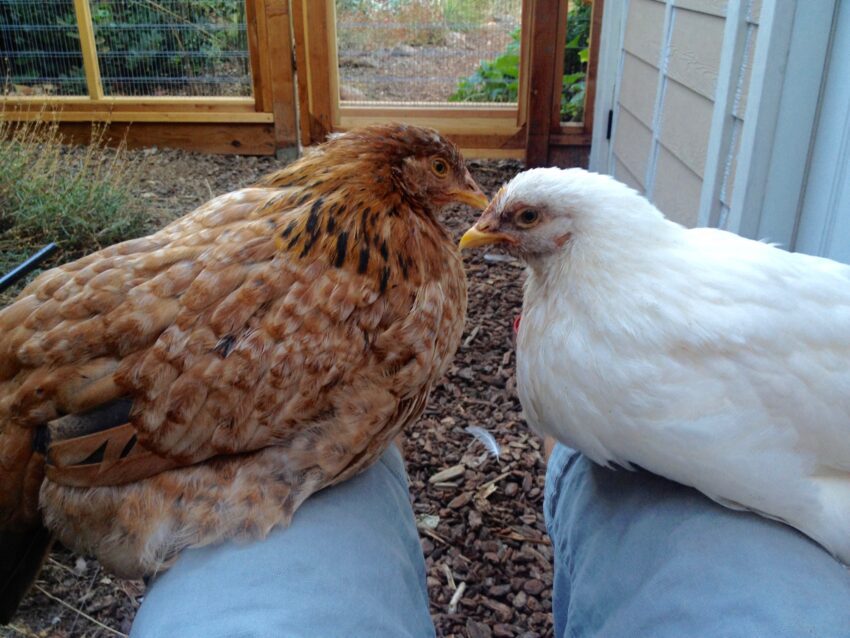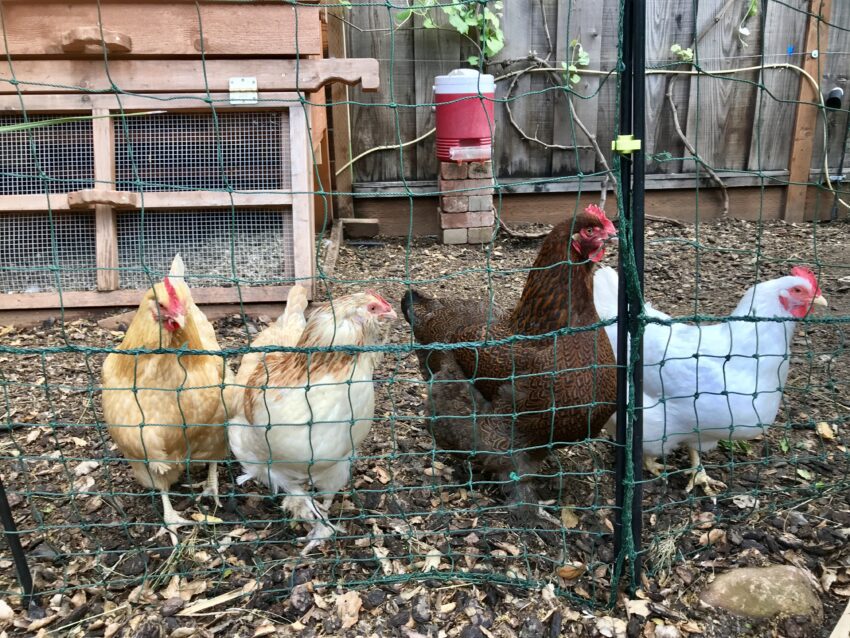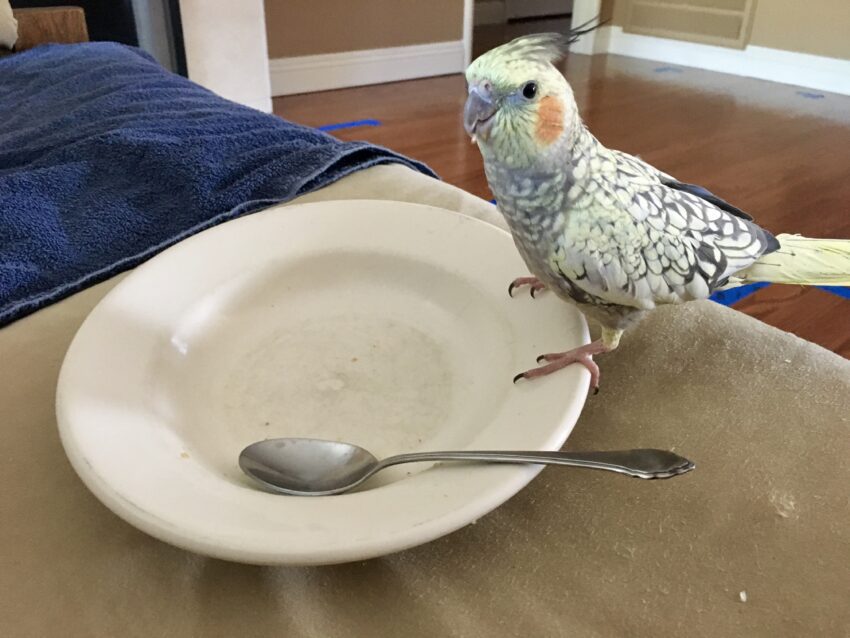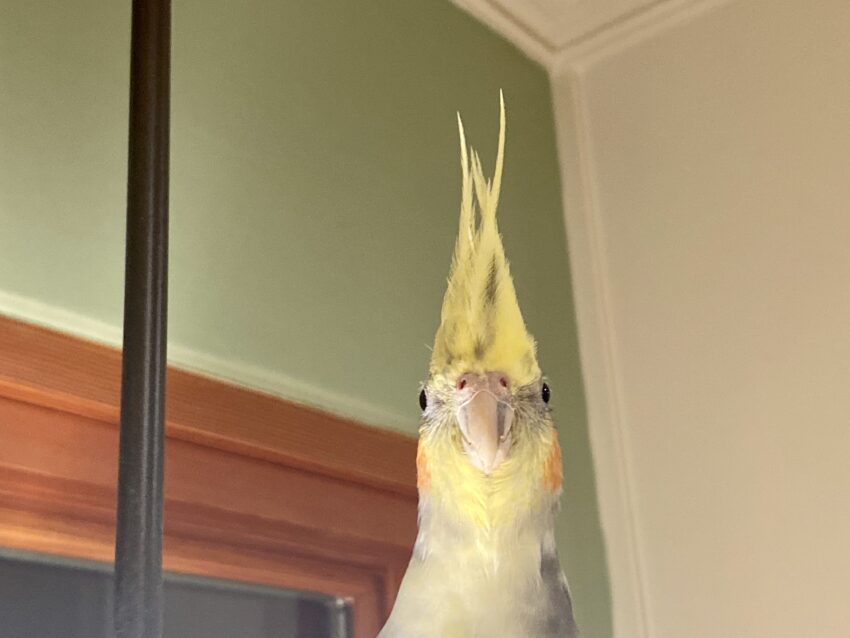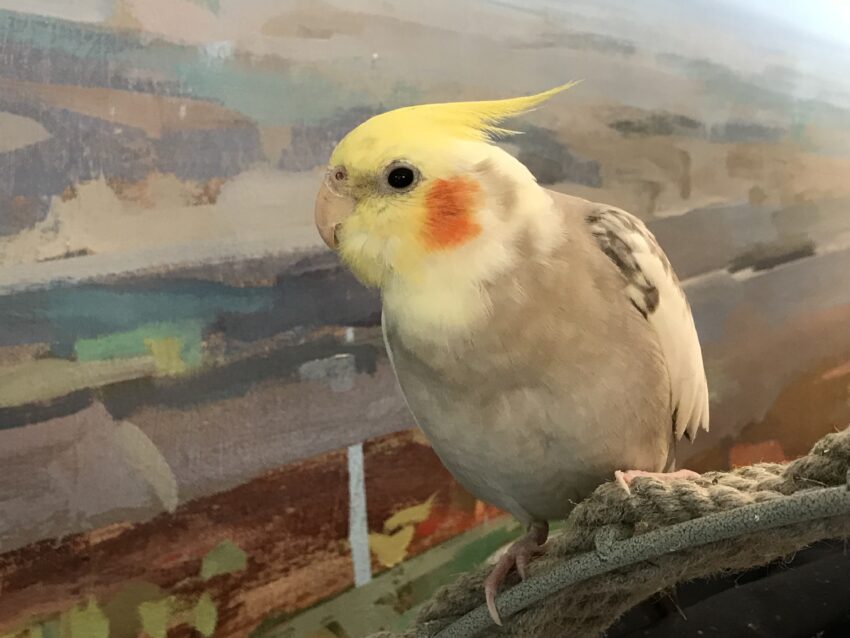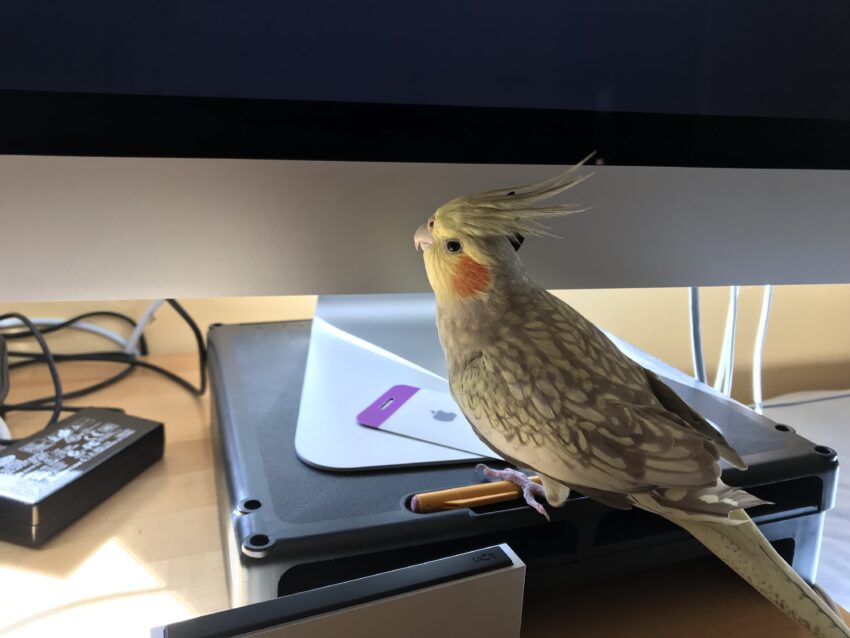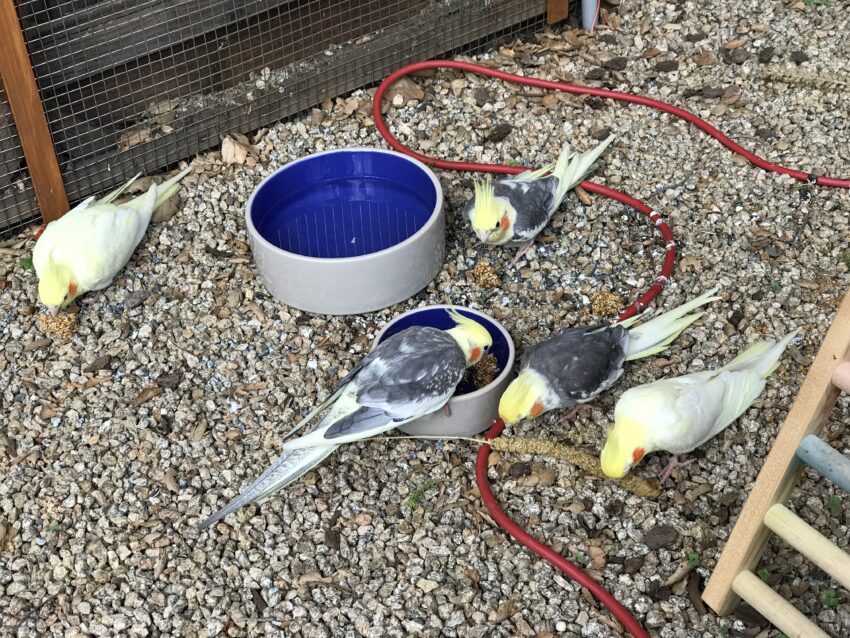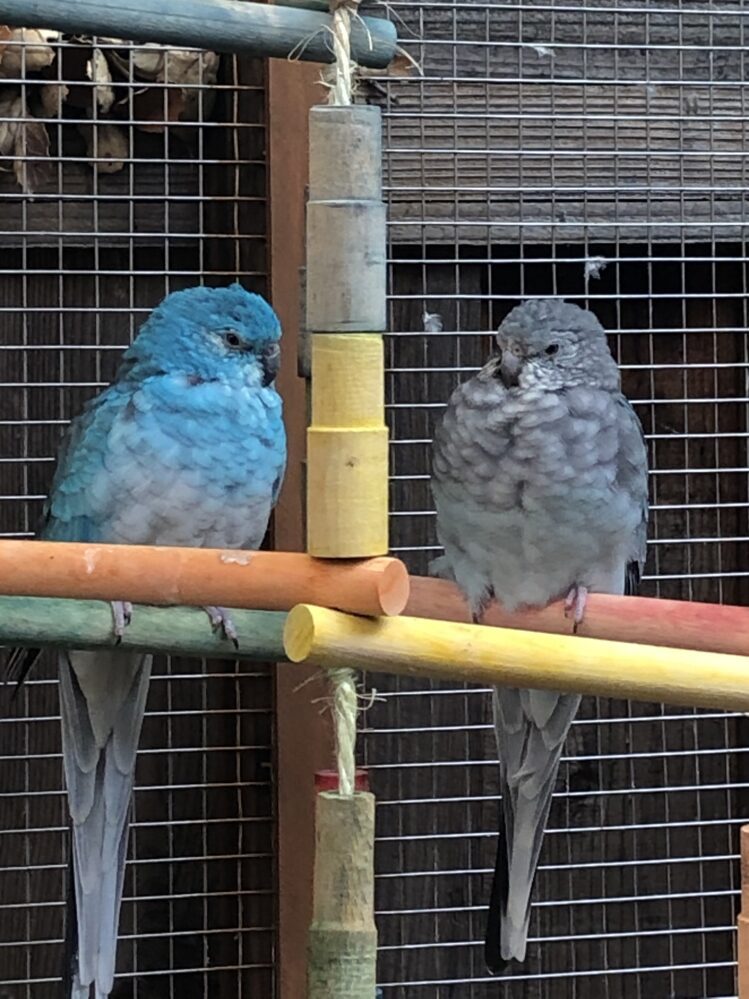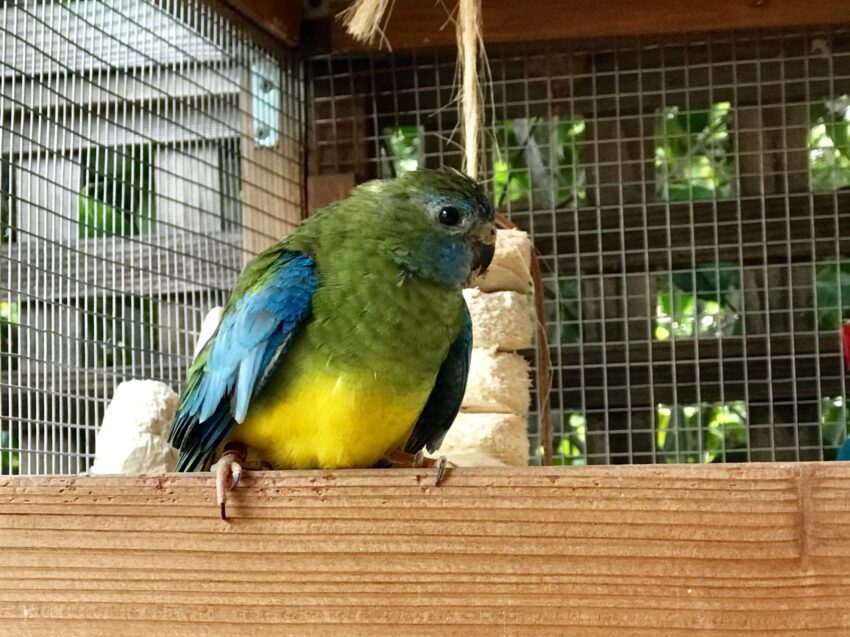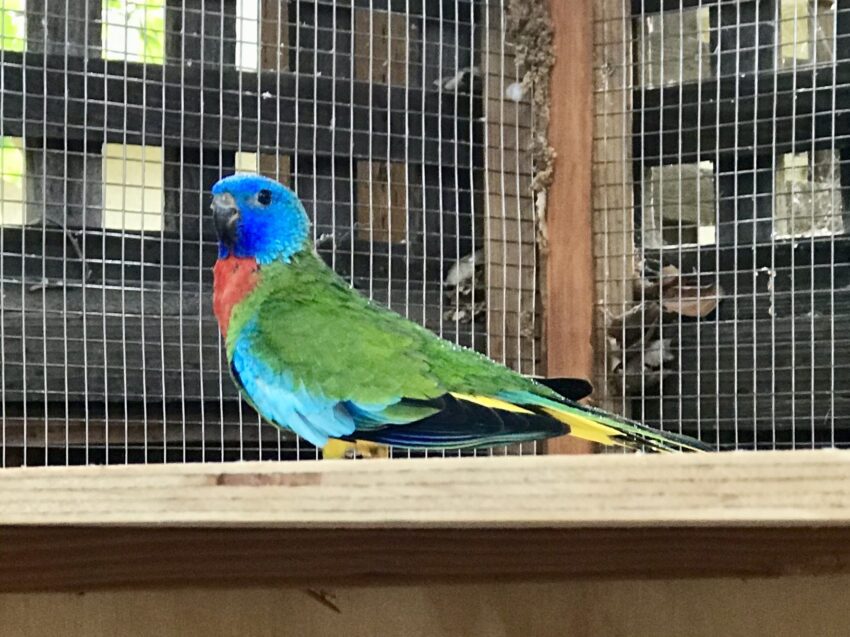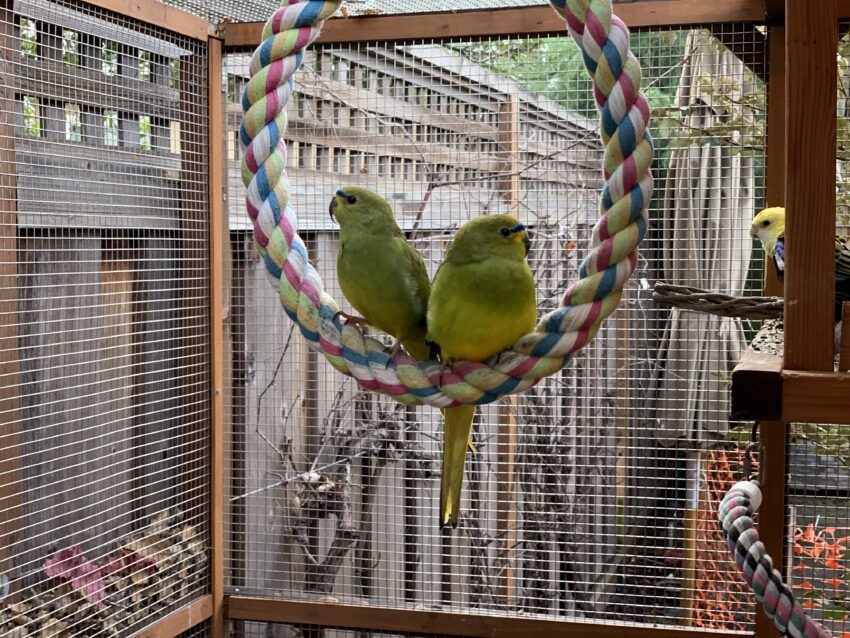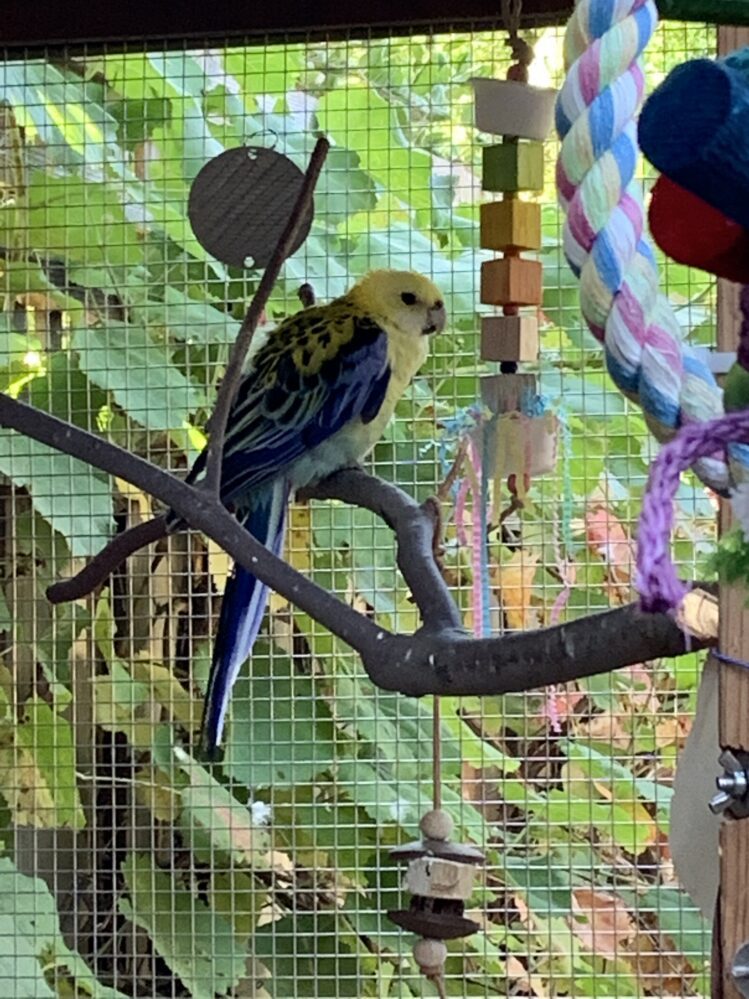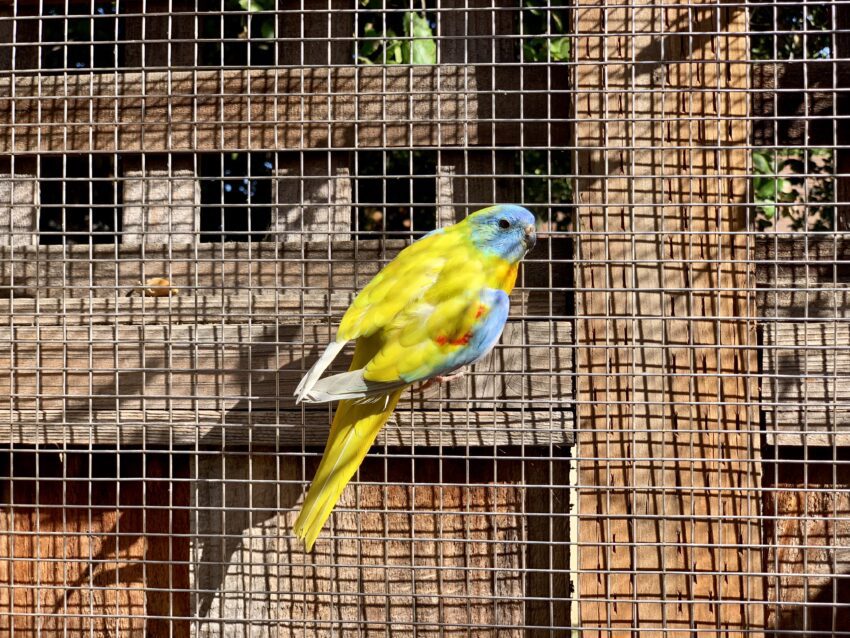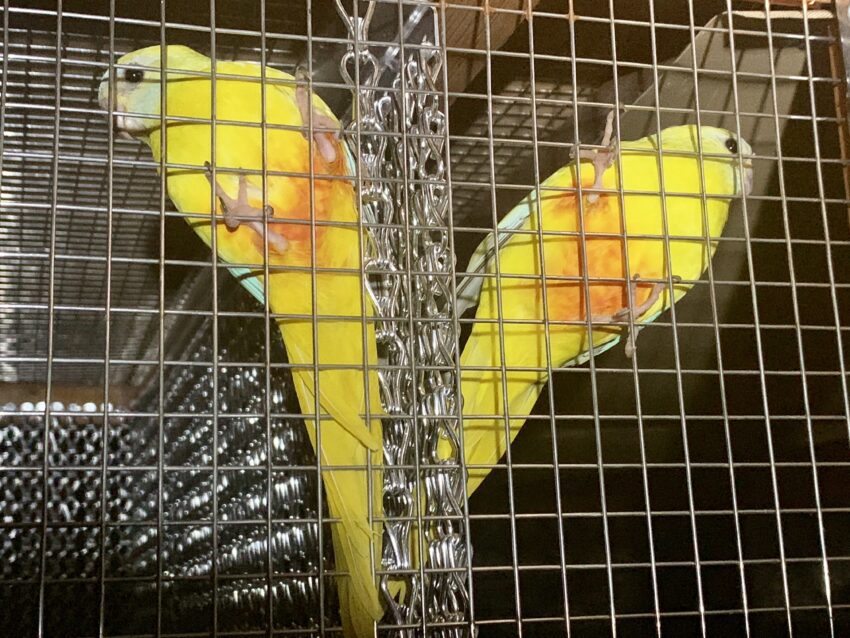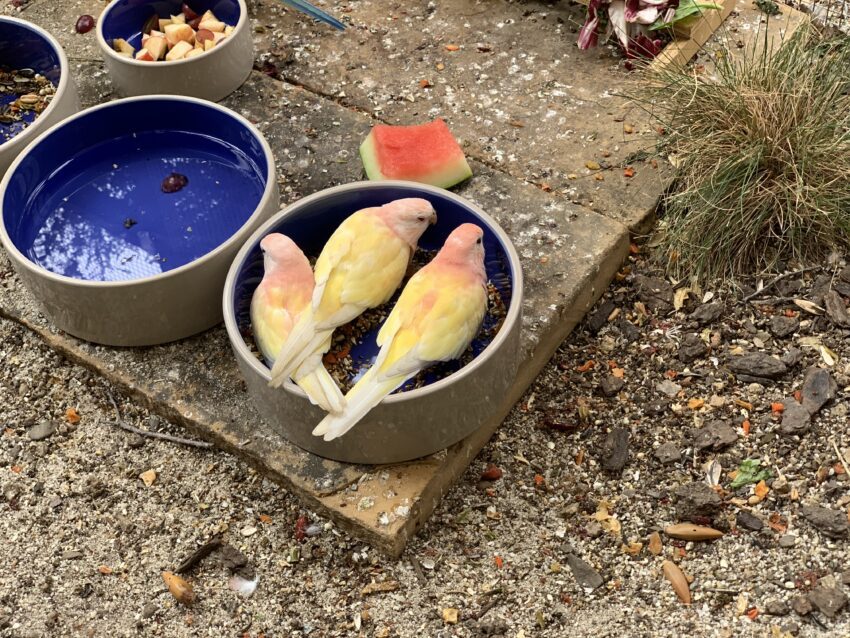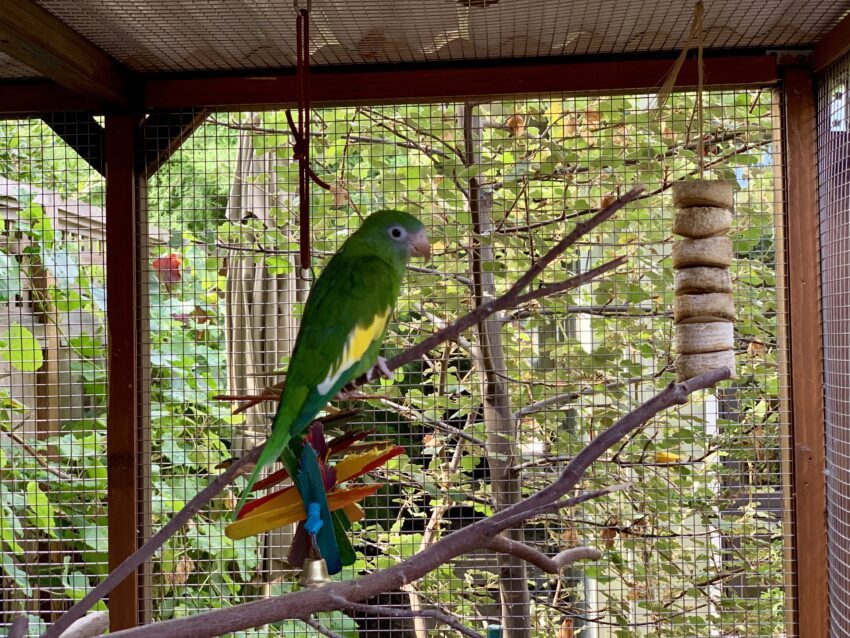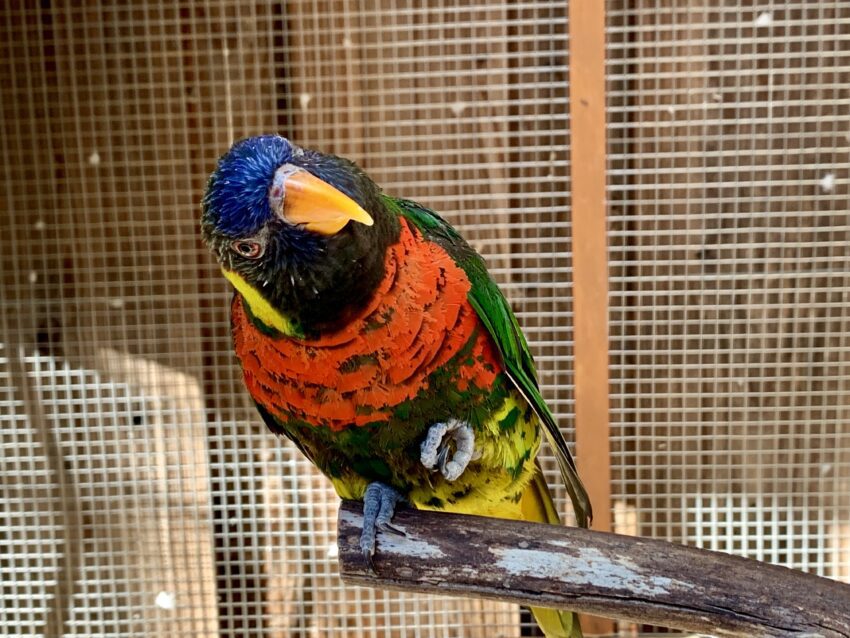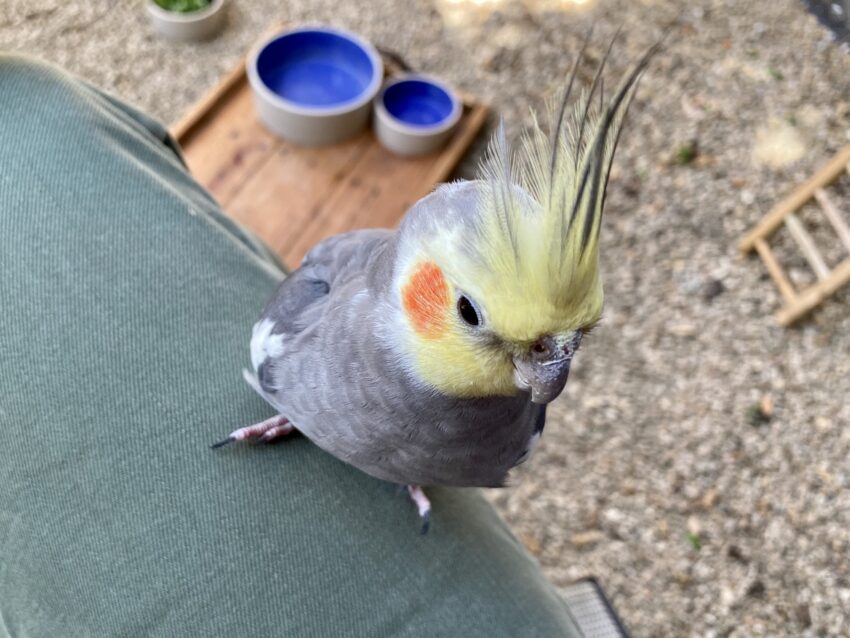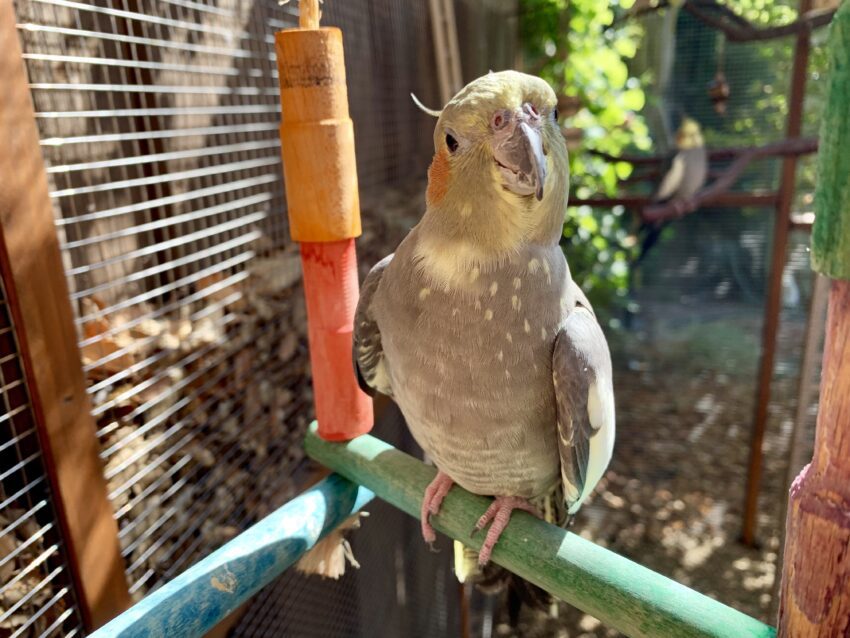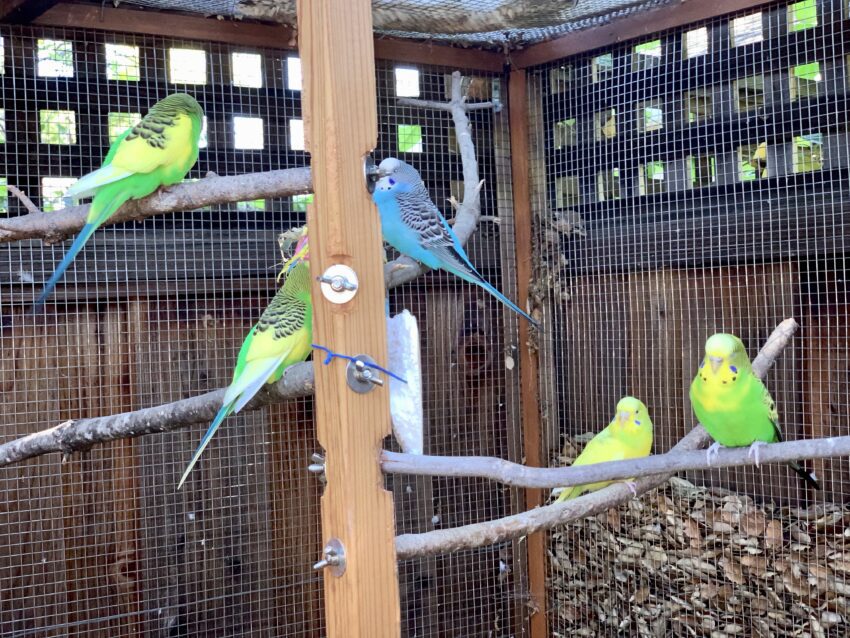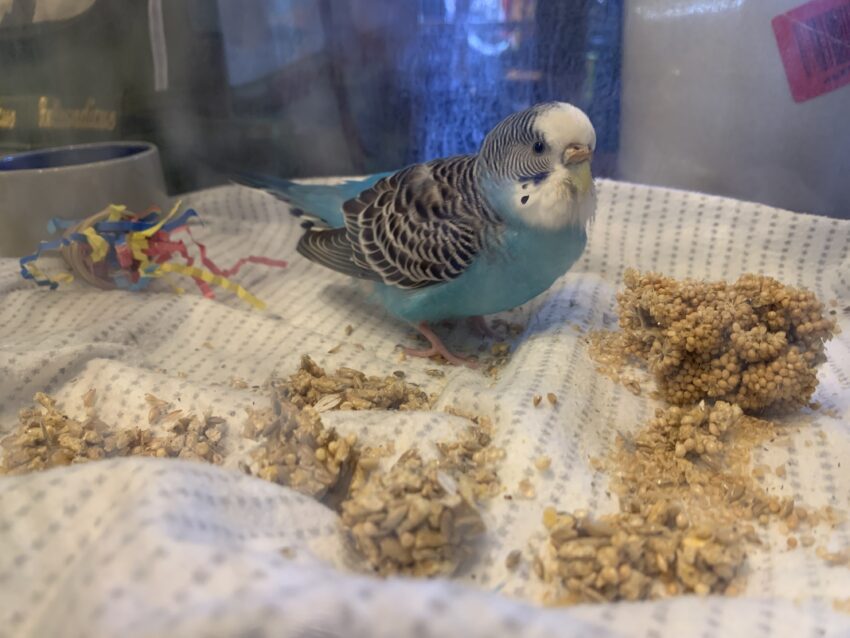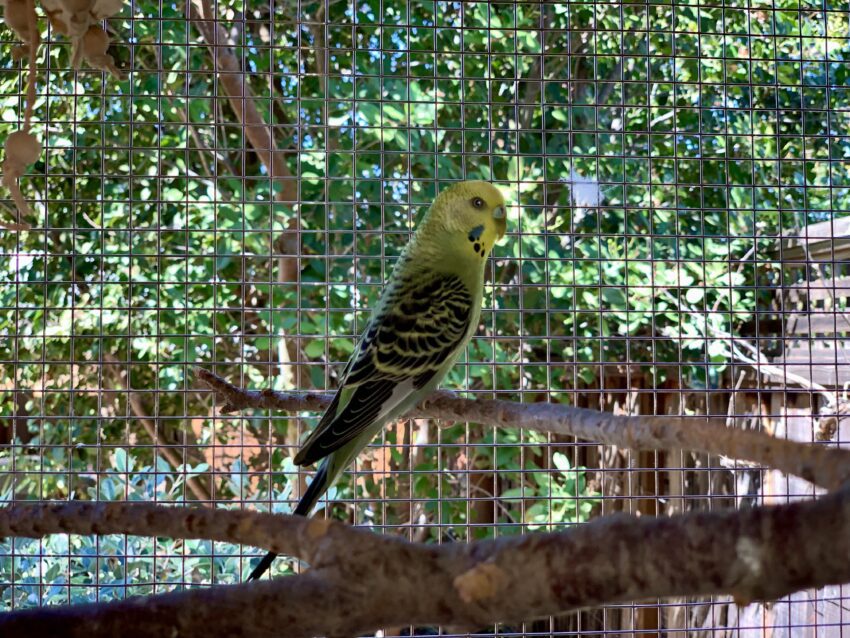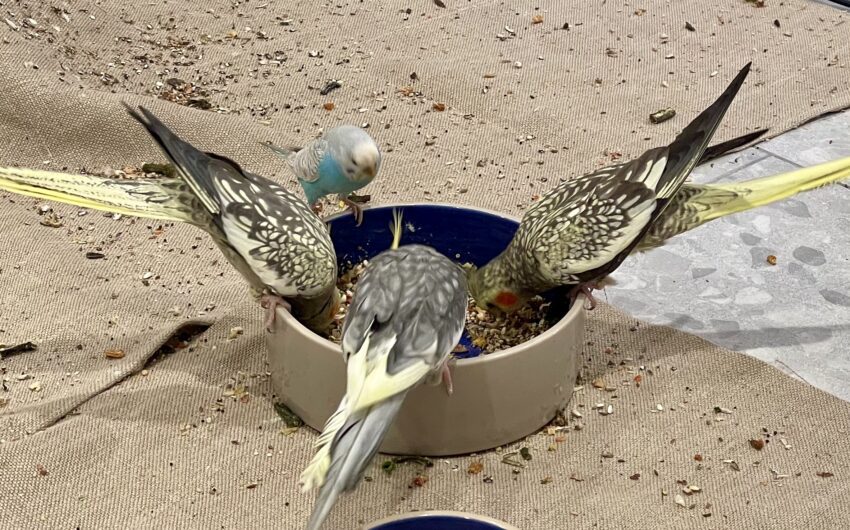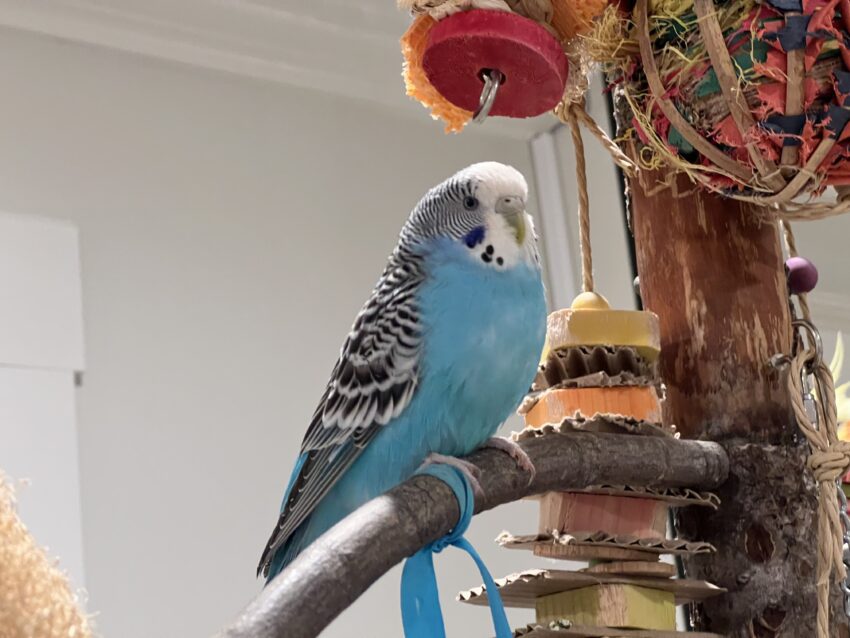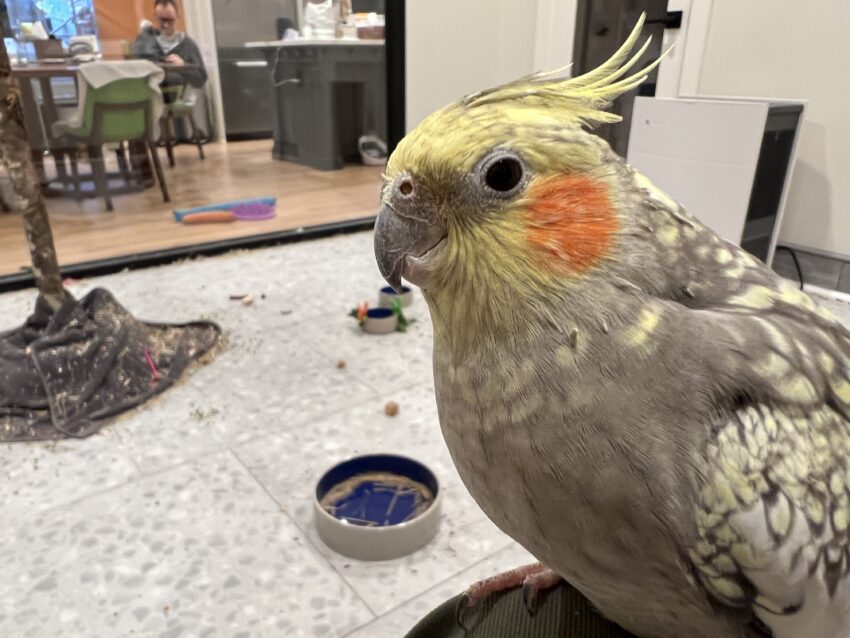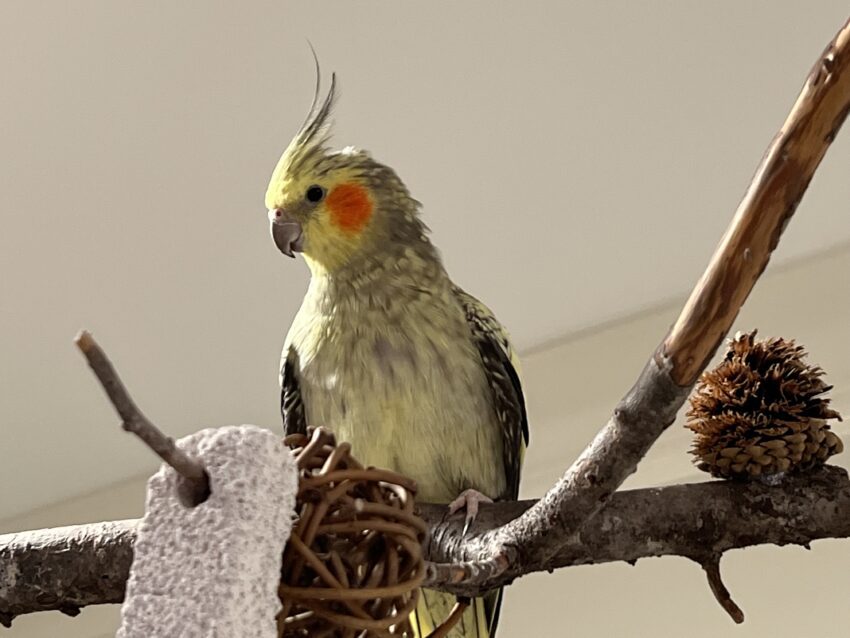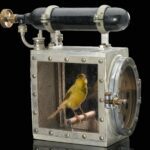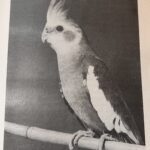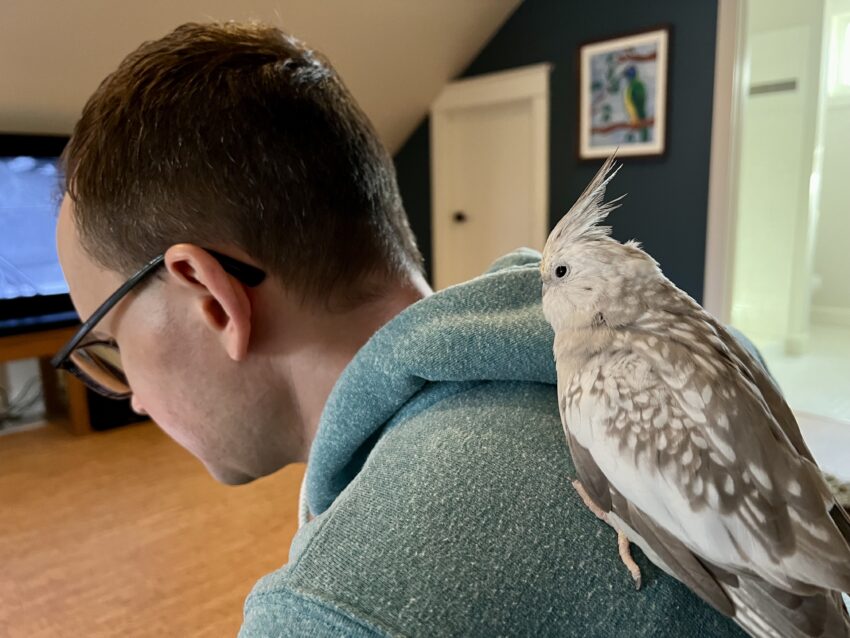
So you’re thinking of getting a parrot…
[If you decide to get a parrot, I’m working on a companion article called “So you’ve decided to get a parrot…“]
People can have very strong opinions when it comes to the topic of whether we should keep parrots. Some feel that it’s cruel to keep any creature with wings in captivity, while others think that parrots make the perfect pet.
I’ll provide a more nuanced position that sits between the extremes. As I’ve written in my life with parrots, I have a lot of personal experience, but I also draw on current research into captive and wild parrots.

Deal-breakers
When giving advice to potential parrot keepers, I usually start with the downsides. Not because I like to be negative, but just like dogs can bark excessively and cat litter boxes can stink, every pet has downsides. If you’re particularly sensitive to one of these, you might want to reconsider getting a parrot. I’ll present some alternatives in the next section.
Household fumes
Birds have very sensitive respiratory systems and certain fumes can be lethal.
- Fumes from overheated non-stick pans, especially those that are “running dry”, can kill birds very quickly. The human health effects caused by chemicals in the PFAS family are increasingly banned around the world. The current situation is murky and your best bet is switch to alternative cookware. Good cooking techniques can render any cookware non-stick, but the most forgiving are ceramic, enameled, or carbon steel. Aluminum, cast iron, copper, titanium, and stainless steel are other options.
- You shouldn’t expose your bird to smoke from cigarettes, cigars, joints, or vapes. It won’t kill a bird quickly, but their life will be significantly shortened.
- Candles, even unscented ones, can be just as bad as cigarettes when burning.
An air purifier that removes VOCs, which are present in smoke and in many household chemicals, can improve your bird’s health and yours. If you’re not wanting to mitigate these issues or can’t afford to, I generally advise people that maybe a bird is not for them.

Parrots are much messier than you could possibly imagine
If you like to keep a really neat house, a parrot is probably not for you. They will scatter seeds, pellets, fruit, and vegetables everywhere. Not to mention feathers! The tiny down feathers behave like dust and can be irritating to your sinuses. Some cages claim to have features that minimize mess, but trust me, they don’t work! And your bird should be spending time outside its cage anyway. Birds will poop several times an hour. When they flap their wings, everything not tied down will go flying.
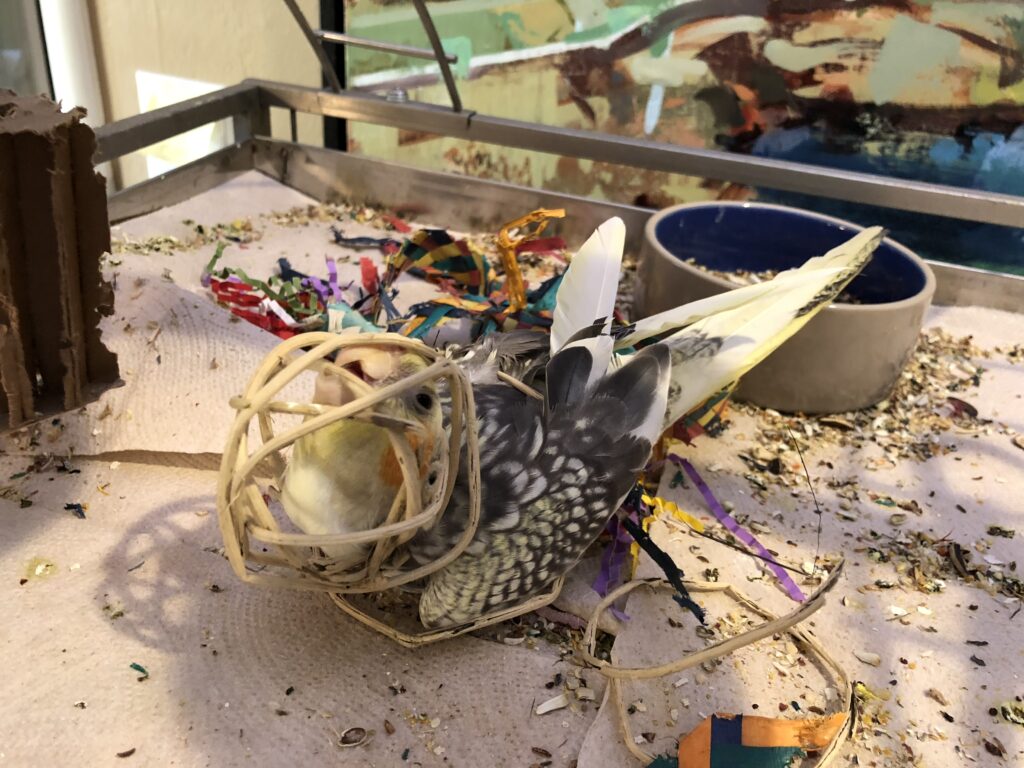
Beaks are destructive
Even the tiniest of parrots have formidable beaks that are built to destroy things. Although you can do a lot to parrot-proof a house, they are inventive and curious creatures. Keeping them isolated in a cage to protect your things isn’t a solution.
Parrots can be loud
Some species are quieter than others and females are generally quieter than males. Even within a species there can be a wide variation. Cockatoos are legendary for their ability to scream, but even cockatiels can be loud and some people find even tiny little budgies irritating for their incessant chatter. You can train a bird to be quieter, but you need dedication and patience.
Parrots aren’t for young children
Young kids move fast and like to poke, prod, and squeeze things. Parrots not only hate this, but the smaller ones especially can be very fragile creatures. I don’t have a recommendation on an appropriate age, but some say 12 years old. They need to possess a lot of patience, the ability to be calm, and to be able to understand the things I’m writing here.
Even tame parrots bite
Parrots typically bite as a fear response, but there can be other triggers. Even the smallest birds can draw blood and what may seem like a “play bite” to a bird might be painful or scary to you. The larger birds can break and shatter bones! Birds aren’t unique in this ability, but be sure to factor that into your decision. With the proper education, however, you can greatly cut down or eliminate biting, but it takes time and patience.
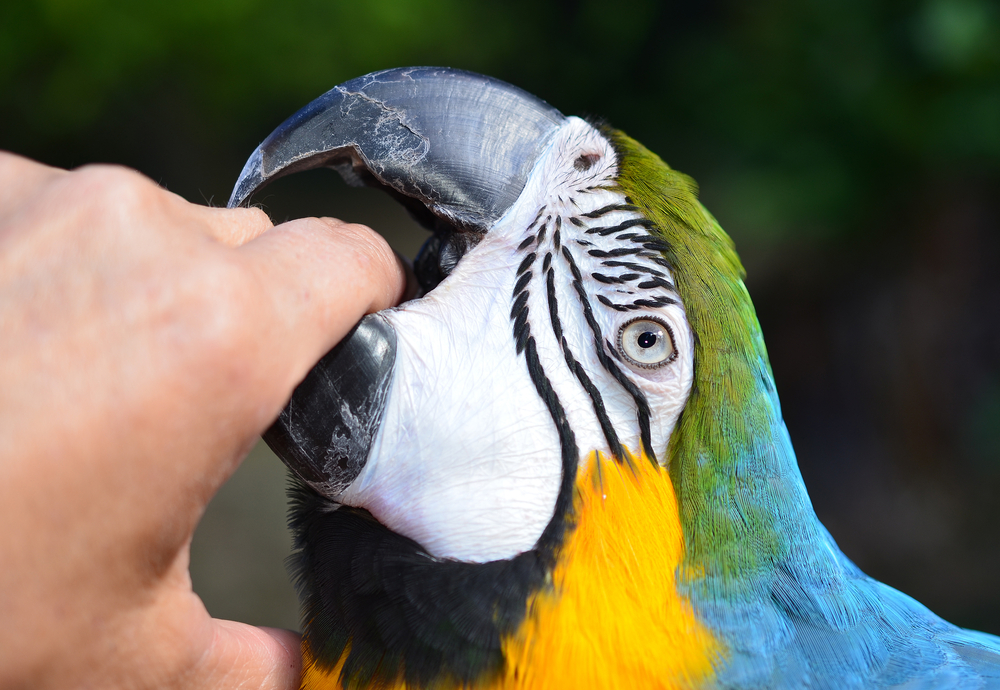
Parrots can be very long-lived
It can be a big commitment to welcome a bird to your family. On average, parrots will live anywhere for 15 to 60 years, with the longevity often increasing with the size of the species. This site has some age ranges for commonly kept parrot species.
Parrots can be expensive
All pets have the potential to be expensive, but it’s a mistake to think that birds aren’t also expensive to keep. There are also some expenses unique to birds. Cages are famously expensive, especially if you get one that is as roomy as you should be getting. Exotic bird vets can be more expensive than dog and cat vets. Your toy budget will likely be more than even an active cat. It’s useful to think of getting a bird is like having a child. You need to consider the financial part before making the plunge.
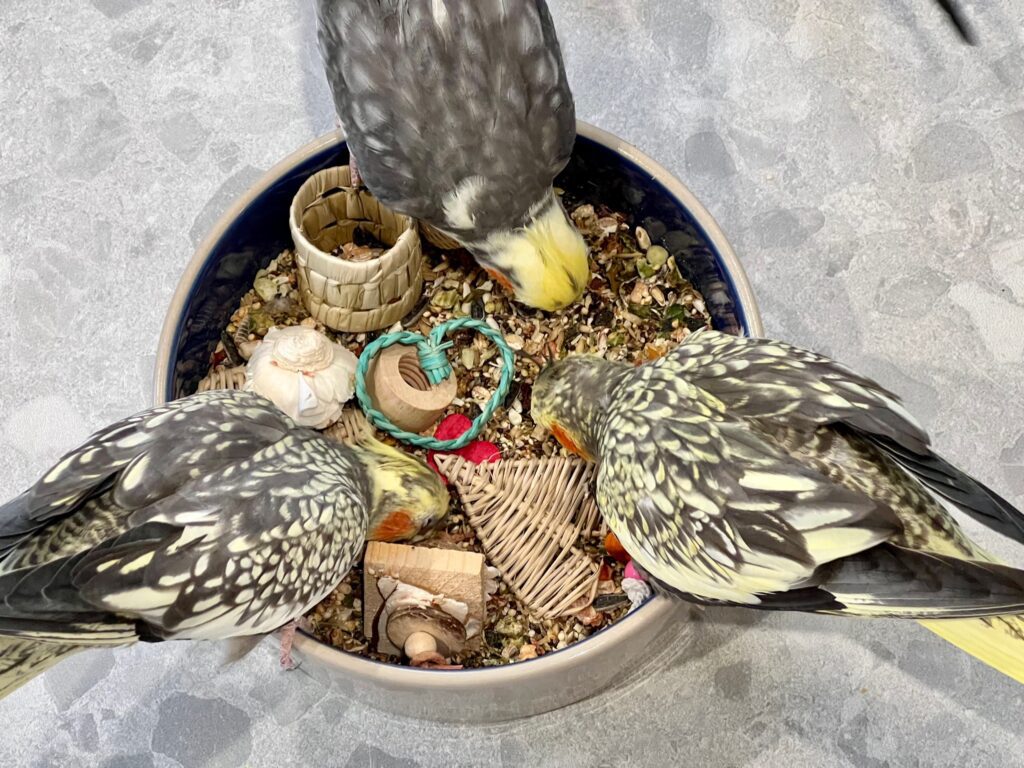
Why do you want a parrot?
So you survived the common parrot pitfalls. The next step is to look at the reasons you want to have a bird. Some of the more common reasons may lead to bad choices or disappointment, while others have more chance at success.
You want a pet that talks
All parrots possess the ability to talk, but it’s not guaranteed. The larger species like macaws, amazons, and African greys are much more likely to mimic speech in a way that’s understandable. Males are significantly more likely to talk than females. The biggest concern is that focusing on talking ability can lead to choosing birds based on this “feature” rather than considering other factors such as temperament, personality, and noise level. Be sure it’s not the only reason you want to get a bird.
You’ve always loved parrots (or any birds)
Well, this is a great reason! If you have an appreciation for birds, their unique personalities, their ability to fly, and their intelligence, then you have the ingredients for success. These can help you overcome some of the challenges you may face. It will inspire you to continue to educate yourself on how to best care for your pet.
You want an affectionate pet
Parrots can be affectionate creatures, but what you find on YouTube may be unrealistic. Birds generally do not like to be pet or held and doing either of these can cause hormonal reactions (biting, screeching, egg-laying). Because cats and dogs are often affectionate, people expect the same to be true of birds. It’s important to have the right expectations.
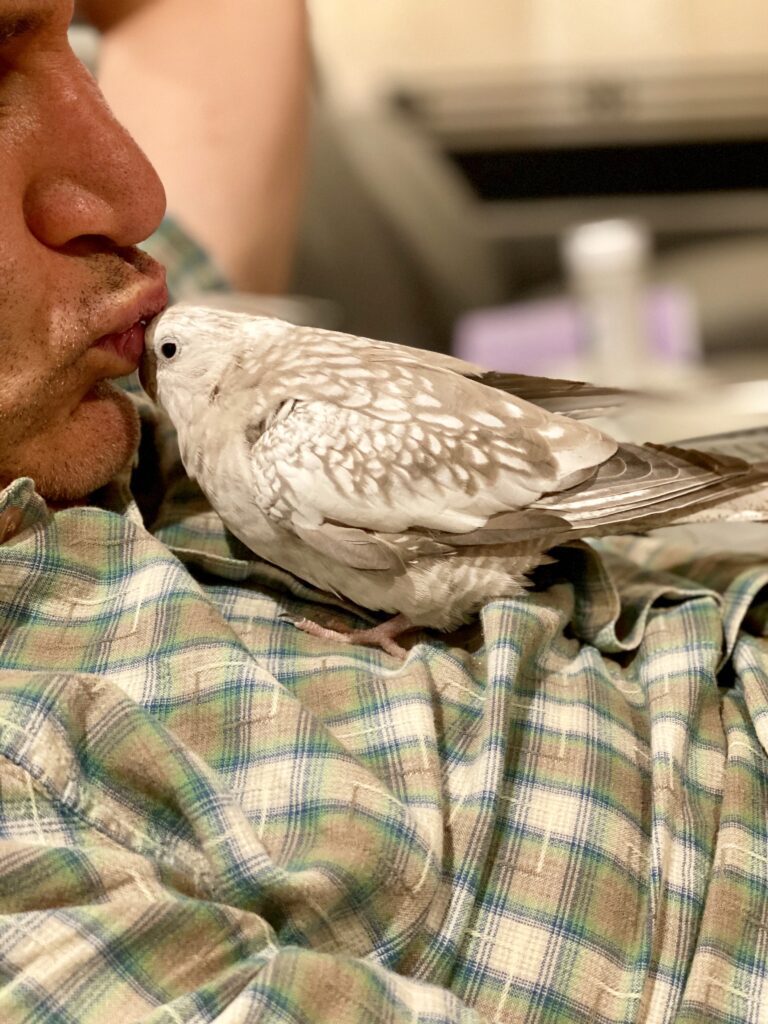
You want a low-maintenance pet
Birds are extremely curious creatures and can require a lot of stimulation to keep from getting bored. A bored bird can end up with behavior problems such as screaming or feather plucking. It can be a challenge to keep them entertained. They aren’t going to go sleep somewhere all day like a cat. If you have a lone bird, they can be demanding of attention similar to a dog.
You want companionship
Depending on what you are looking for, birds can be excellent companions. Some enjoy just sitting on your shoulder, hanging out on a cage or perch in the same room, fly to you when you enter a room, or chirp or sing to you as you go about your day. An interesting side note is that birds with PTSD have been shown to be mutually beneficial companions to humans that also suffer from PTSD.

You want a pet the whole family can love
Although other pets can show preferences for specific people or genders, birds can take this to another level. Some of the larger species, if kept as lone birds, can bond with one person and be aggressive towards other members of the household. In a less extreme case, a parrot can form a stronger bond with one person, which can be a problem for those the bird doesn’t favor as much. Working at a shelter or a bird rescue, I’ve seen plenty of “either I go or the bird goes” situations where a bird is given up for adoption.
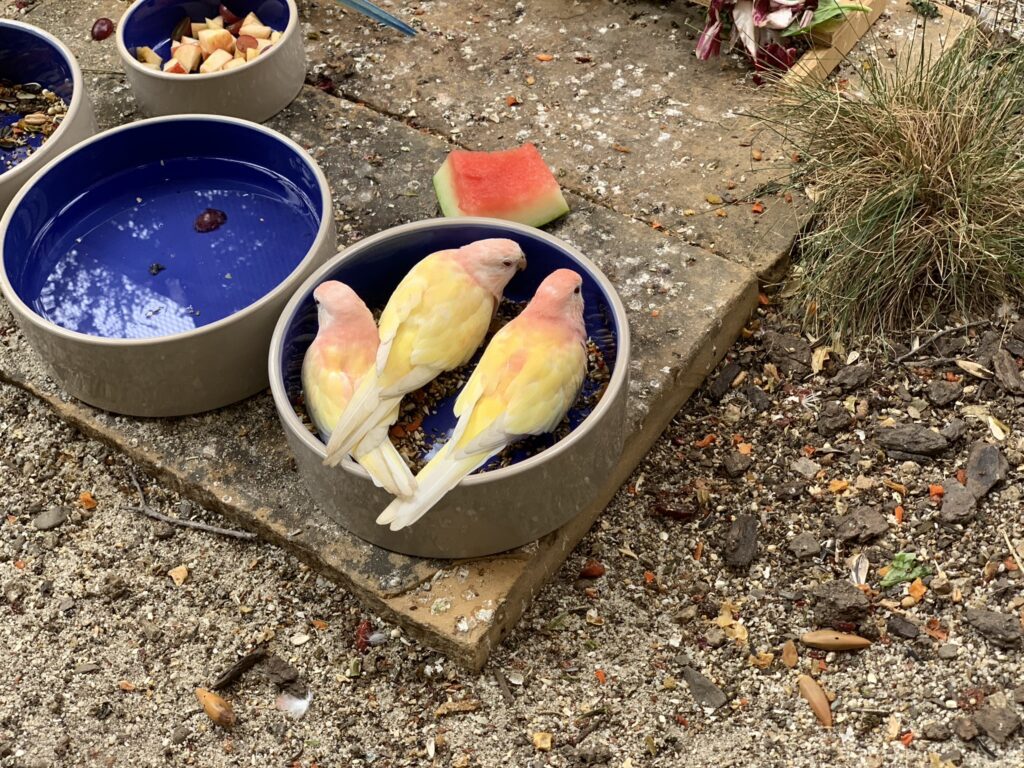
Alternatives to parrots
If you’re not quite sure about having a parrot, there are some excellent alternatives to parrots that are very much worth considering. Some are shorter-lived, require less maintenance, and are excellent for first-time pet or bird keepers. And many of them still have feathers!
Chickens
I’m a big fan of chickens and they make wonderful pets. They are great for first-time pet owners and are much lower maintenance than parrots. Typically you get several chickens, they keep each other company, and are less demanding of human attention. I’ve had some that like to be held, or sit on my lap or shoulder. You’ll need a yard with adequate space, something to keep out predators, a shelter for them to roost in, you’ll need to check local ordinances about keeping poultry. And you get eggs!
Doves & pigeons
A little-known alternative is doves and pigeons. They are available from some animal shelters and bird rescues. They can be quite affectionate and are very quiet. They make pleasant cooing sounds. People keep them as house pets or also in outdoor enclosures.
Finches
This is one of the only species that is small enough to fly inside a cage environment but be sure to get the roomiest cage you can. They are quiet and have very pleasing chatter. They are quite hyper and entertaining to watch.
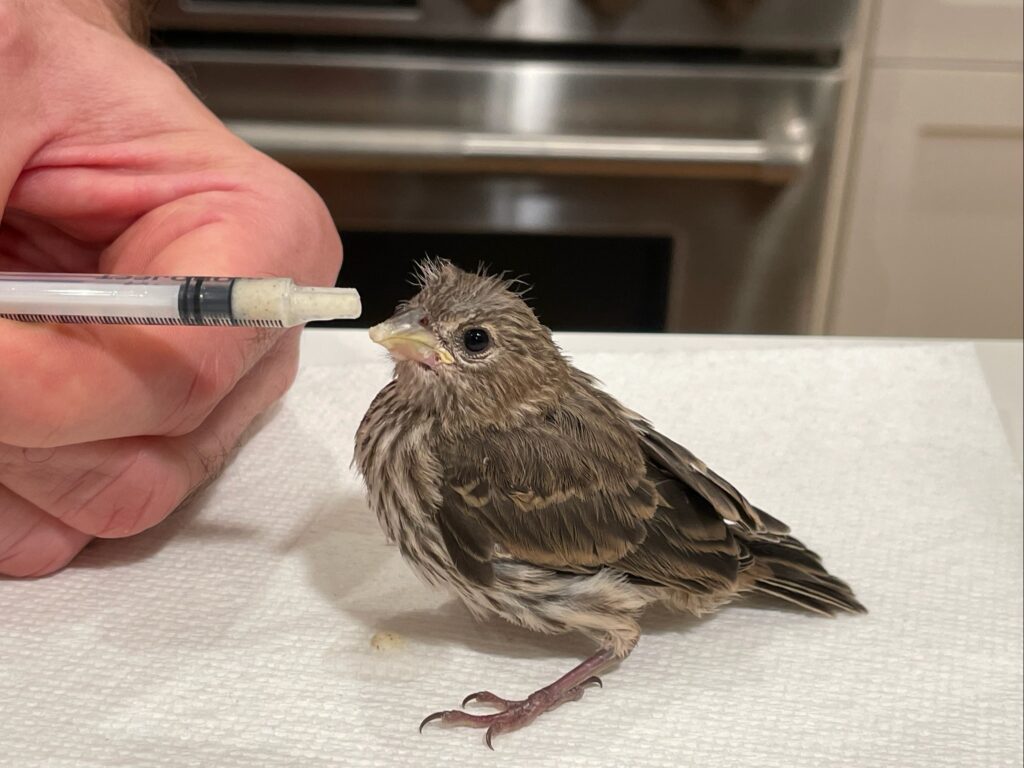
Other small animals
If you’ve never had a pet before, some are very forgiving of inexperienced owners and are less of a commitment. Getting one doesn’t mean you can’t get a bird later! Guinea pigs, rabbits, hamsters, and mice all make very entertaining and affectionate pets and don’t have many of the downsides of birds.

What makes parrots different as pets?
A quick history lesson. Birds are the only class of dinosaur species (Aves) to survive the extinction event from an asteroid 66 million years. Today, their closest living relative is the crocodile. Their common ancestor with mammals goes back 315 million years! So, they are very far away on the family tree from dogs, cats, and other common pets.
They fly!
Aside from the Kākāpō, all parrot species fly. People sometimes don’t consider all the implications of a winged creature in their home. We refer to our birds as “two-year-olds with wings”. Birds can land on kitchen counters, stoves, tables, curtain rods, bookshelves, chairs, moulding, the tops of doors, in open cabinets, and many places you never could have imagined. They can also escape when you’re not being careful with outside doors and windows. Be sure to survey your home before bringing a bird home and imagine what they might get into and prepare for it the best you can.
Parrots are not domesticated
Most people don’t know this, but, unlike cats and dogs, birds are not considered domesticated animals. What that means is that they were not bred specifically as human companions. They have been bred more for form, color, and ability to sing than for any other factors. Dogs have long been bred for their temperaments, including their suitability as human companions. This includes their ability to endure the type of confinement that humans typically impose on them. Birds are wild creatures and you should take that in mind when you strive to make their lives happy.
Parrots are slow to trust
Birds are slow to trust people, in general, and some may be very distrustful of new people even if they are otherwise comfortable. Whereas it’s possible for a dog or cat to befriend you minutes after you bring them home, birds will take time and patience to build trust. Be sure that you are ready for that kind of commitment. Spending 15 minutes a day intensively with a bird can be enough to see measurable progress as the weeks pass by.
Parrots want to be part of a flock
Parrots are flock animals. In the wild, they spend most of their time with others of the same or similar species. If you have just one bird, they will frequently consider you to be part of their flock. They may eat when you eat or nap when you nap. Their heads may be itchy and they want you to scratch them. They may call to you when they hear the sounds of you arriving home or coming in from another room. Birds sometimes don’t handle being alone as well as cats do, for example. I always encourage people to consider getting a second bird down the road sometime. When you are not around, they will appreciate being part of a flock.
What are some other things to consider?
Before you make the final decision about getting a bird, here are some additional things to think about.
Where to put your parrot’s cage
A lot of advice on the internet will tell you to put your bird’s cage in a quiet, low-traffic area, not near a window, and away from any air vents so they don’t get a chill. But birds are very social creatures and want to feel part of the family, who they consider to be part of their flock. And birds are well-equipped to survive a wide range of temperatures and drafts won’t affect them.
Some issues to consider, though. Birds need more sleep than humans, at least 10 hours if possible. It’s helpful to cover the cage for sleep and for it to be in a reasonably quiet place. Some conversation is fine, but no loud music or TV. An alternative is you can have a second, smaller cage in a quiet room that is only for sleeping. Or you can wheel or otherwise move the main cage into that room. Birds can get overheated, so don’t put the cage in the sun on a hot day such that there are no shady areas in the cage for the bird to go.
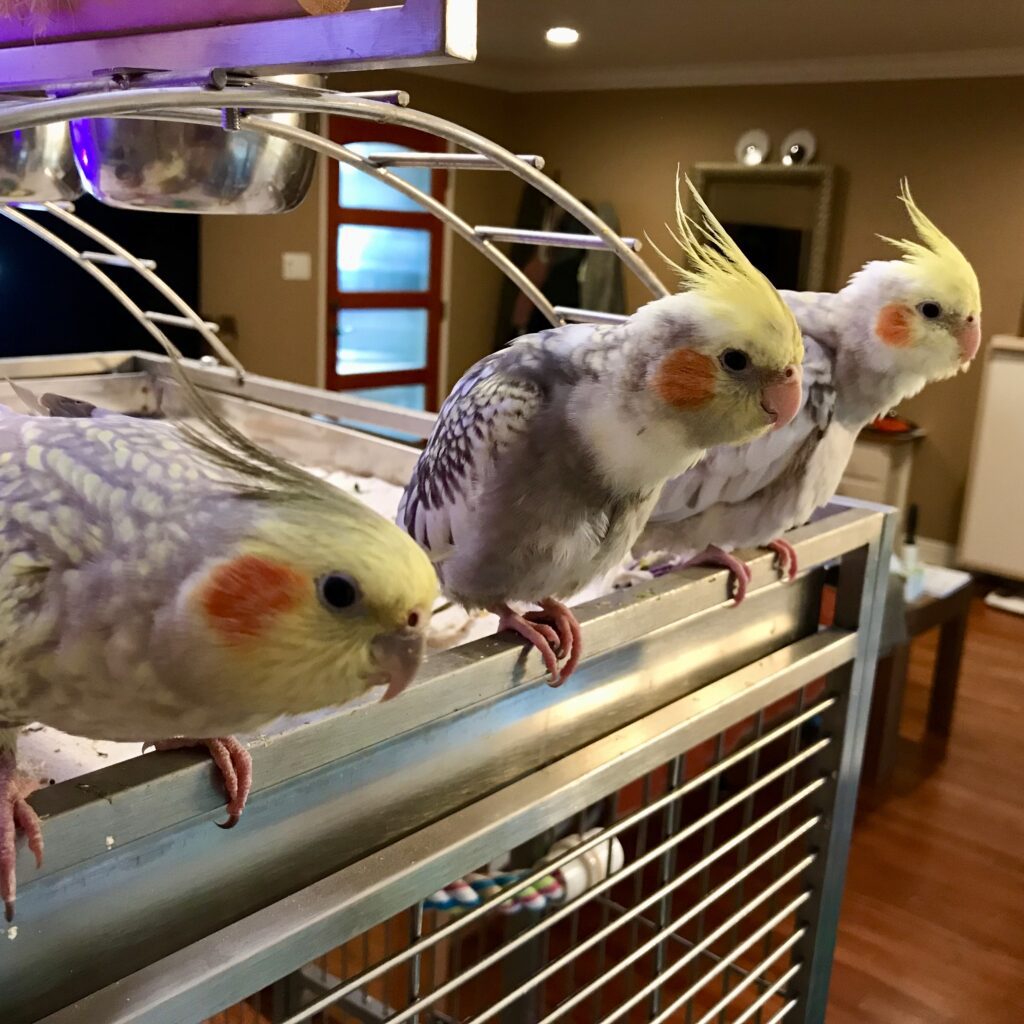
What if it doesn’t work out
Wherever you end up getting a bird, find out if there are options to bring the bird back if it doesn’t work out for your household. The reason to mention this is that there are so many unwanted birds out there is that it’s difficult to place them in new homes. Some bird rescues can be helpful in taking a bird back into foster to find a more suitable home.
Who will care for your parrot when you’re “gone”
While it’s relatively easy to find a cat or dog-care person, finding someone familiar with birds can be difficult. If your bird has no particular special needs, you can probably train a sitter or a neighborhood kid to do it. But if giving medication is involved or you want to bird to have outside-the-cage time, it’s best to find someone that has some bird-savvy.
Due to the longevity of birds, it’s prudent to think of what should happen to your bird when you’re gone gone. Consider putting a paragraph in your will designating who should inherit your bird. Don’t saddle someone with your bird without talking to them first. It’s always an option to name a bird rescue organization or shelter to “inherit” your bird when you die.
Parrot community is small
Unlike cats, dogs, and many other pets, relatively few people keep birds. The downside of this is that you don’t have a built-in community nearby whom you can share knowledge with. You’re left with internet resources (such as this one!) and it can be difficult to know who to trust.
Wing clipping
This is a very controversial topic. I’ve written an article where I present some additional arguments against wing clipping that I don’t often hear made. As you might imagine, I strongly oppose wing clipping. Before making the decision to get a bird, try to figure out a way to integrate them into your life without needing to clip their wings. It’s considered cruel by most cat owners to remove their toenails, and clipping a bird is arguably more traumatic than that.
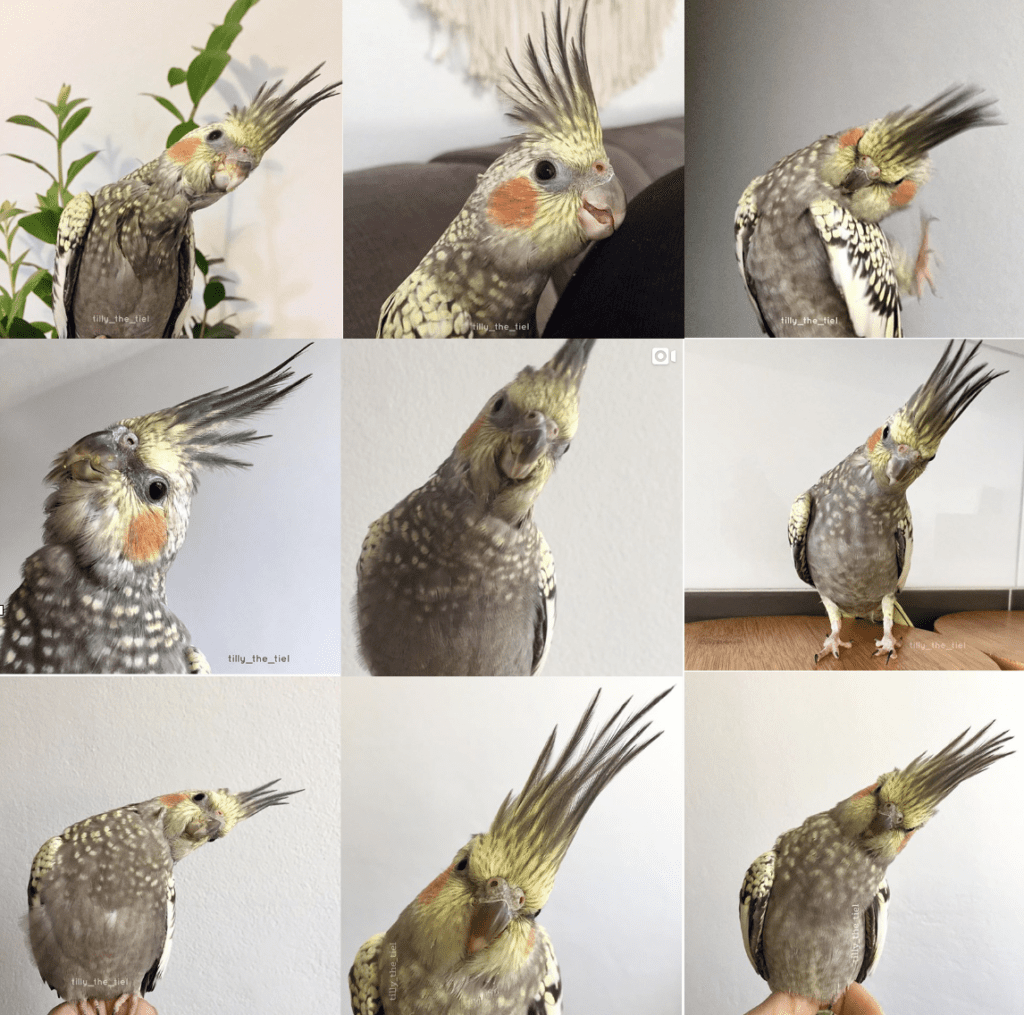
Conclusion
Hopefully, this helps answer some of your questions about bird ownership and leads to a more informed decision. When doing further internet research, you might find these two articles useful: “How do I know who to trust?” and “What if you can’t find a credible source?“.
Feel free to contact me with any questions.
[If you decide to get a parrot, I’ve written a companion article called “So you’ve decided to get a parrot…“]
